BuildOps is the projects platform built for commercial contractors.



Automate scheduling, labor tracking, and pay apps

Track real labor and cost data to avoid overruns.

Track resources and task profitability in one place.
Know the Cost. Control the Schedule.
Delayed labor costs kill budgets. BuildOps helps you stay on top of labor and material expenses—so overruns are avoided, and you forecast labor with confidence.
Clearer job costing. Fewer surprises.
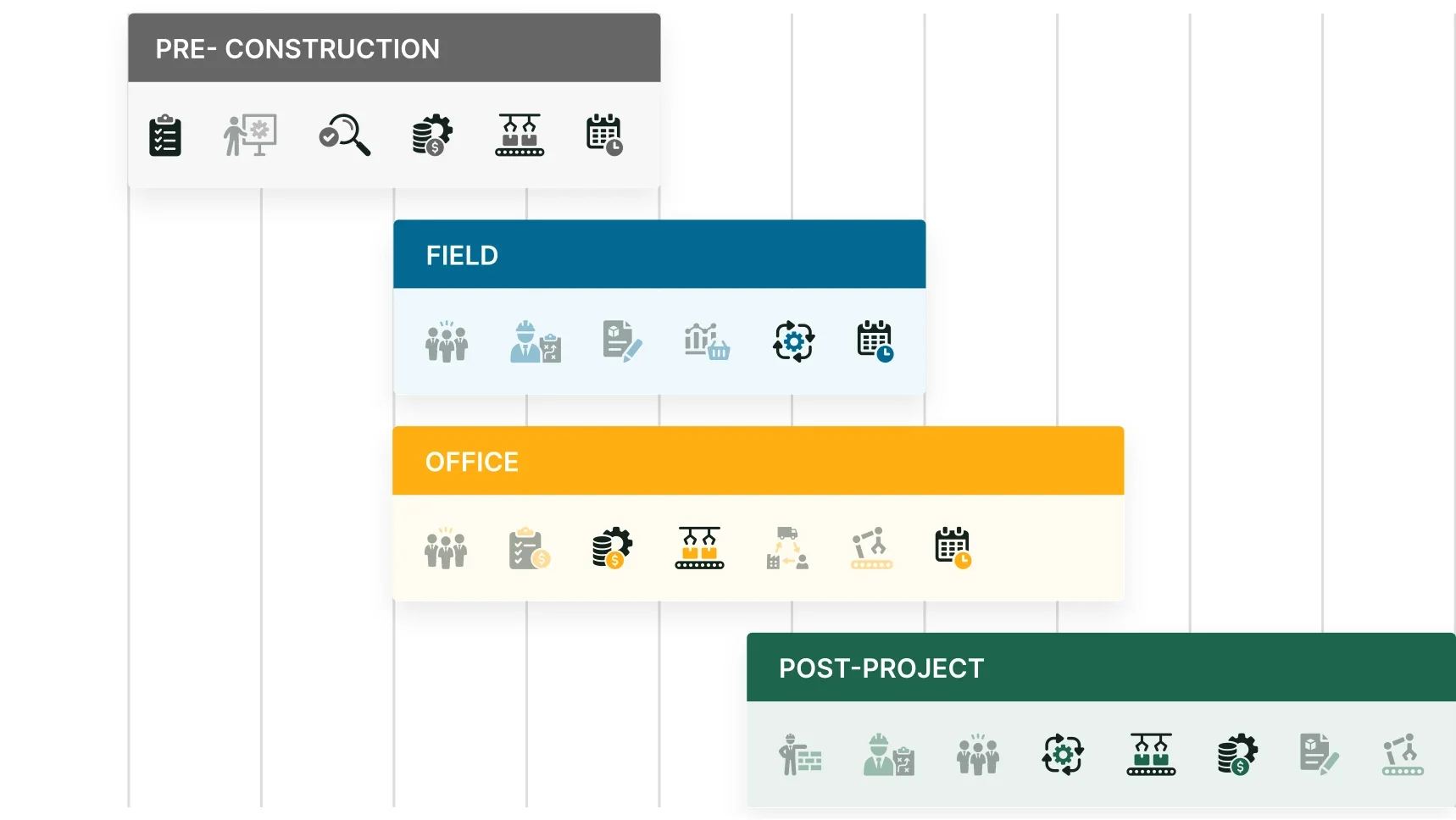
No More Expensive Ordering Mistakes.
Ordering materials before submittal approval wrecks budgets. BuildOps gives you full visibility into the bill of materials, so orders only happen after approval—keeping projects on time and on budget.
Right materials. Right time. No reorders.
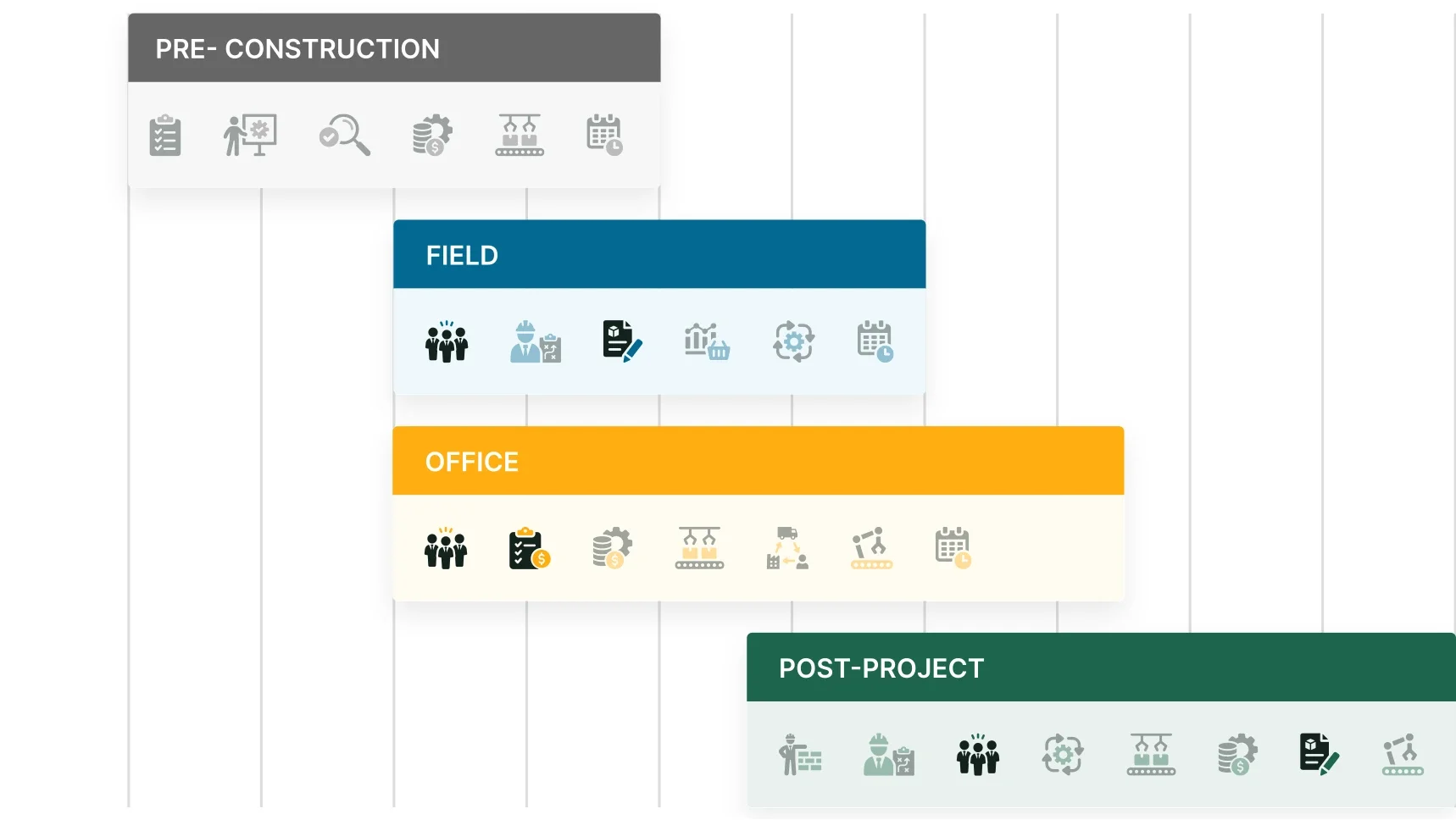
See the Cost of Labor.
Blended wage rates hide real costs. BuildOps calculates labor costs by category and crew composition, so you can adjust teams without blowing the budget.
Stay on schedule. Stay on budget.
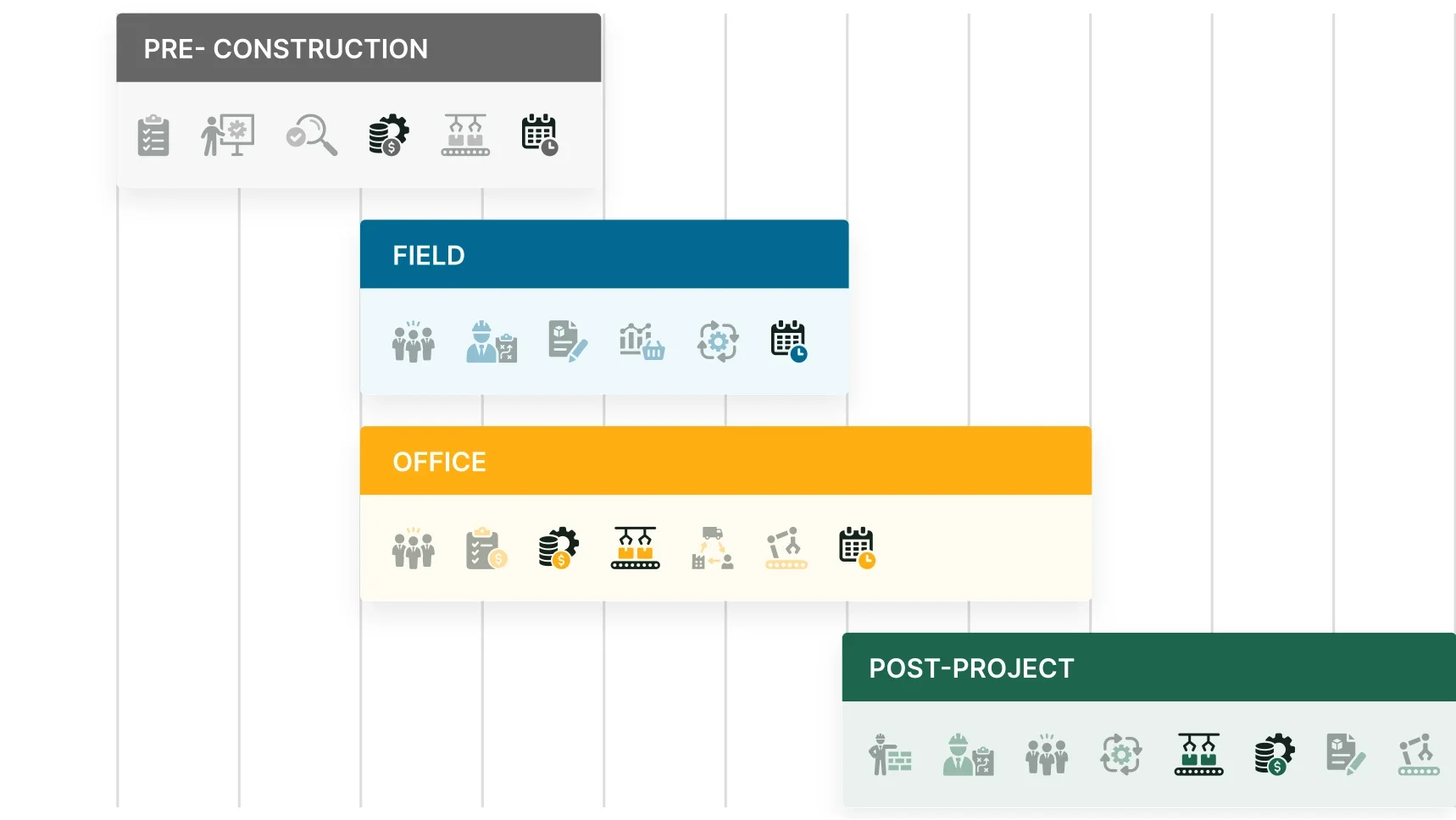
Coming Soon!
From check-in to job transfers, BuildOps tracks every piece of equipment—so you always know where it is and what it’s costing you.
No more “Where’s our trencher?”—it’s all in BuildOps.
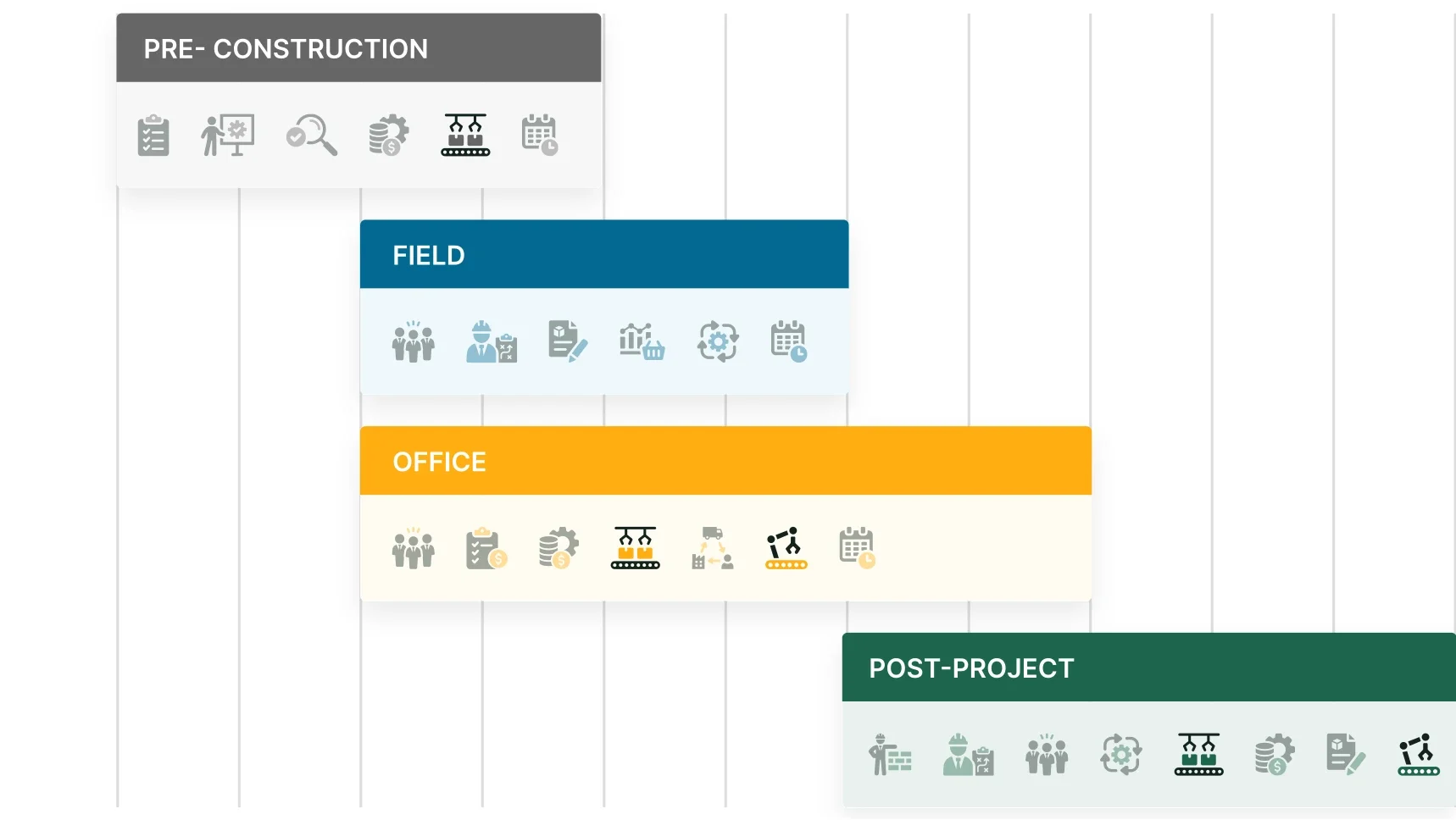
One System for Every Trade.
Stop internal subcontracting headaches. BuildOps manages multiple trades in a single project, tracking revenue and profitability by department without buried spreadsheets.
Paperwork nightmares eliminated.
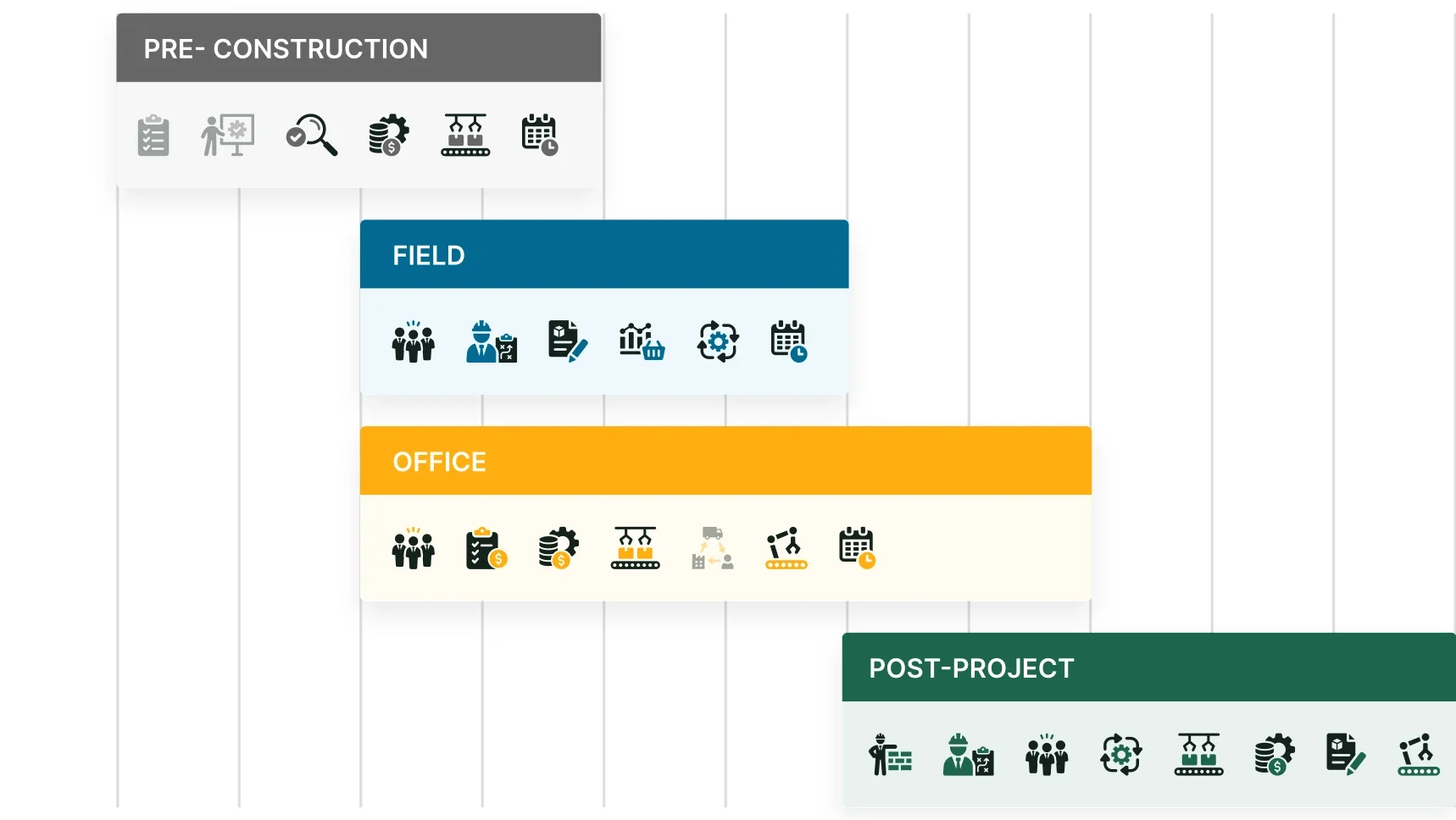
Essential Features to Keep Your Projects on Track
Streamline processes with RFIs that trigger potential change orders. Minimize budget impact and manage changes seamlessly with daily reports that flag out of scope.

Streamline processes with RFIs that trigger potential change orders. Minimize budget impact and manage changes seamlessly with daily reports that flag out of scope.

Simplify the complex process of AIA billing with streamlined retainage billing to ensure accuracy and compliance.

Optimize your project schedules with advanced scheduling tools. Plan, assign, and manage tasks to keep your projects on track.

Create, manage, and track POs within the BuildOps platform. Ensure procurement processes are efficient and transparent.

Gain complete visibility into job costs. Track expenses, labor, and materials to stay on budget and maximize profitability.

Keep your drawings up-to-date and ensure everyone is working from the latest plans with a clear change history log. Streamline document control and reduce errors.
Keep your HVAC projects running like a well-oiled machine. From precise scheduling and real-time tracking to detailed job costing and efficient labor management, BuildOps has you covered. Ensure every job is done right and on time.
Take control of your refrigeration projects with BuildOps. Track every piece of equipment, schedule tasks seamlessly, and ensure compliance with industry standards. Boost productivity and profitability effortlessly.
Power up your electrical contracting business with tools for precise labor tracking, comprehensive project management, and real-time insights. Keep your projects on time and within budget while maximizing efficiency.
Streamline your plumbing operations with BuildOps. Schedule jobs effortlessly, manage resources efficiently, and maintain detailed records with ease. Deliver top-notch plumbing services and stay organized and on budget.
Ensure your fire safety projects are smooth and reliable. Track equipment, manage schedules, and maintain compliance effortlessly. BuildOps supports fire safety contractors in delivering dependable and efficient services.

BuildOps isn’t just another platform—it’s built for commercial contractors who need full control over every project, every cost, and every crew.
Stop the headaches, avoid costly mistakes, and run every job with confidence.